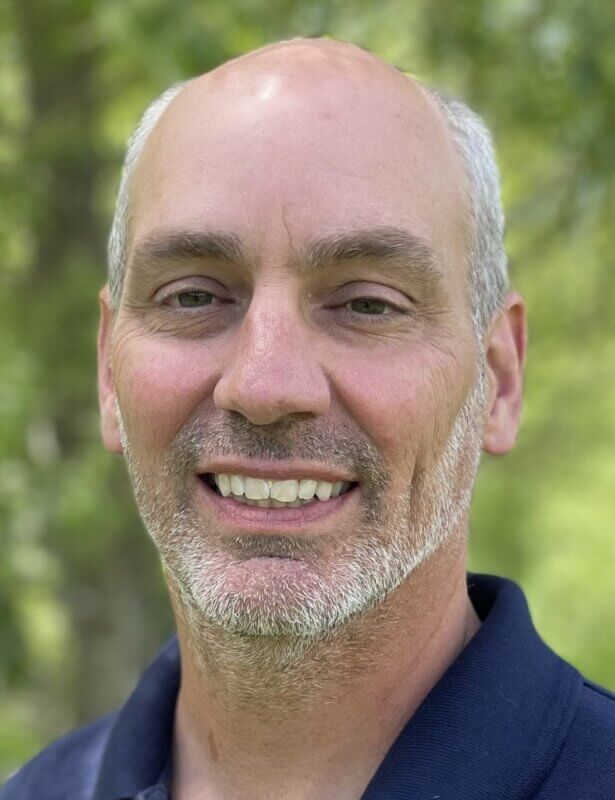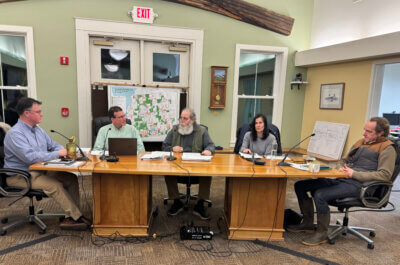Declaration of Inclusion proves controversial in Charlotte
A handful of people spoke in favor of the town of Charlotte adopting a Declaration of Inclusion at the selectboard meeting on Aug. 12, while a handful of people were opposed to adopting it.
Al Wakefield and Barbara Noyes-Pulling are part of a group of five Rutland-area residents who have been pushing for towns around the state to adopt the declaration. They attended the Monday meeting via Zoom.
Wakefield and Noyes-Pulling’s group have persuaded 152 towns to adopt the Declaration of Inclusion in the three and half years they have been working on it.
“This is very simple. There are no legal liabilities. This has been reviewed by the Vermont League of Cities and Towns and the Vermont Chamber of Commerce supports this, and the governor has proclaimed this is important to Vermont,” Wakefield said. “Our vision is that Vermont will become known as the most inclusive state in the country.”
Noyes-Pulling said that the governor puts the worker shortage at 10,000 people now, and Vermont is predicted to lose 100,000 people to retirement over the next 10 years. She sees adopting the declaration as a way to attract workers.
Besides just being the right thing to do, she said, it’s also the right thing to do for economic reasons.
Tanna Kelton is opposed to the town adopting the Declaration of Inclusion. She believes it isn’t needed because there are other documents that cover the issue of inclusion like the state and U.S. constitutions.
Kelton said the town could create its own document and argued for slowing the process down. She argued the town shouldn’t rush to endorse the inclusion declaration.
The issue was originally brought up about three years ago.
Kelton also alleged that, if one looks deeper into “their” website, “what ‘they’re’ after is development in town, bringing in international and national people to live here, bringing in businesses and investors.”
Wakefield said there was no financial support coming from other organizations to support the Declaration of Inclusion. It’s just the five volunteers working to get towns to approve it.
Nina Regan announced her strong support for Charlotte to approve the Declaration of Inclusion: “I can’t think of any reason not to. If we were to vote against it, it would raise a lot of questions about who are we in Charlotte. Every other county, every other town and city in Chittenden County has approved this. The governor is on board. Other counties are doing it. Why not us?”
“I think at some point, as the country begins to change with religions and colors and races and all sorts of people, we should be aware of that. We should be accepting,” Julia Gilbert said. She has been reading and thinking about the declaration for some years now and believes the town should be thinking about adopting it sooner rather than later.
Gilbert said she feels that interpreting the Declaration of Inclusion to mean suddenly Charlotte will have people moving in from all over the country is “fear mongering.”
The declaration doesn’t scare her because there’s not another step the town has to take if it adopts it. Gilbert said, “I would rather be a town that stands for inclusion rather than saying ‘no.’”
Rev. Kevin Goldenbogen of the Charlotte Congregational said he assumed everyone agreed with “the substance” of the declaration. He is interested in how the declaration would be implemented if it is passed by the town. He hopes it would be a tool to measure how the town is doing when it makes decisions.
“I guess the way to say it is: ‘I support it, and I think it’s a no brainer,’” Goldenbogen said.
In response to a question from board member Lewis Mudge about the organizers’ response if Charlotte decided to put it to a town vote, Wakefield said several towns have voted on the declaration at Town Meeting Day voting. The Declaration of Inclusion was passed overwhelmingly in all of those town votes, except one. The vote in the very small town where it didn’t pass was 39 opposed and 33 in favor.
Nothing is mandated by the declaration, and no town needs to form a committee, Wakefield said.
“What we’re talking about is an attitude,” Wakefield said. “There’s no legal jeopardy. It’s something you should do because you feel like you want to welcome individuals of all kinds to Charlotte.”
Both Faulkner and board member Kelly Devine said it should go to a town vote.
Former publisher of The Charlotte News, Vince Crockenberg said, Vermont is the least diverse state racially and socioeconomically in the country, except maybe Wyoming.
“It’s timely for us to counter the impression that we are this kind of exclusive white enclave in New England,” Crockenberg said. “I think we’re not, not intentionally, but if you look around at who lives here, we’re rich and we’re white and we are old.”
Mudge, who has supported the Declaration of Inclusion since it was first discussed, said, “Just a personal note: I do support this, and I will be voting for it, and I would come out and advocate for that vote. But I do think it’s important for people to have their say.”
Board member Kelly Devine said there were several steps to be taken before the Declaration of Inclusion could be put on the town ballot as an item for voters to decide, although the selectboard “could sort of agree in principle” to move in that direction.
Mudge said, “I’m committed to putting it on the ballot.”
Speed lowered
The selectboard voted to lower the speed limit to 25 mph on Ferry Road west from its intersection with Greenbush Road approximately .4 of a mile to the railroad tracks and from the railroad tracks to Lake Road to 40 mph.
These speed limit changes will become effective on Oct. 3.
Mudge said he had heard for a lot of people who live in this area and “I’ve yet to hear from one person who lives on that road who says, ‘I don’t want it.’”
Frank Tenney cast the lone opposition vote to the speed change.
Related Stories
Popular Stories
If you enjoy The Charlotte News, please consider making a donation. Your gift will help us produce more stories like this. The majority of our budget comes from charitable contributions. Your gift helps sustain The Charlotte News, keeping it a free service for everyone in town. Thank you.
Bill Regan, Chair, Board of Directors





